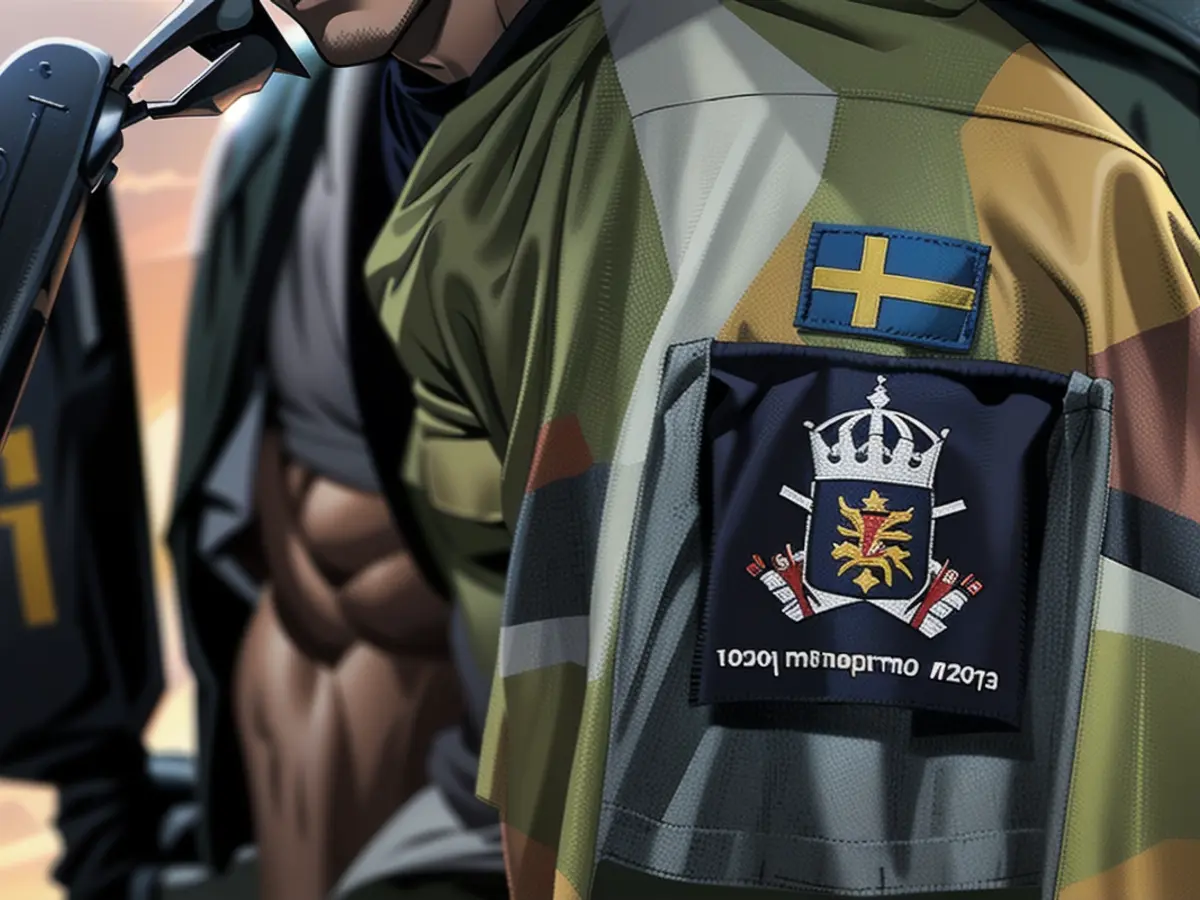Readying Sweden for potential armed conflict
Akin to Germany, Sweden's defense policy has shifted after Russia's attack on Ukraine. Their focus now revolves around "total defense."
In most European countries, energy supplies would be as susceptible in case of war as in Sweden. This Scandinavian nation boasts 16,000 kilometers of power lines running through dense forests, far from civilization. Authorities and strategic planners worry that saboteurs could infiltrate these areas undetected, causing power line damage, and triggering power blackouts.
Similar to Russia's actions in Ukraine, critical infrastructure tops the list of war targets. The Russian military's incursion over two years ago has damaged half of all Ukrainian energy facilities, resulting in lengthy power outages and winters without functional heating systems.
Sweden intends to get ready for potential crises. "We don't know how much time we have left," says Defense Minister Carl-Oskar Bohlin in a Bloomberg interview. Preceding Sweden's NATO membership, Bohlin emphasized their will to readopt the "total defense policy" from the Cold War. "We had one of the most advanced and well-thought-out civil defense systems in the area, with two main objectives: first, to maintain society under extreme challenges, especially in a military strike, and second, to mobilize the entire society to support our armed forces."
Policymakers Call for Increased Investment in Military and Civil Defence
Sweden's defense policy has adjusted, like in Germany, after the Russian attack on Ukraine. Since then, Stockholm has increased financial support for its security. The funds aren't entirely reserved for the military; Sweden aims to enhance nationally essential infrastructure in the upcoming years: ports, roads, railroad networks, hospitals, and shelters.
Sweden's budget for 2024 allocates 5.5 billion kronor for this purpose - about 470 million euros - a substantial increase compared to their spending in 2021. The Swedish Civil Contingencies Agency urges further investment, at least ten billion kronor, to better prepare for crises.
The military agrees with this approach. As stated by Chief-in-Chief Micael Bydén to Bloomberg, "It doesn't matter how powerful the military is - without proper civil defense support, we can't accomplish what's required."
Reactivated Power Plant in Sweden
The most critical project in the context of emergency preparedness is reactivating a decommissioned power plant in the southern city of Malmö. The initial plan aimed at selling the Öresundsverket plant, owned by German energy giant Uniper, and removing it from operation. However, the Ukraine conflict prompted a reconsideration.
Grid operator Svenska Kraftnät requests Uniper to keep the plant on hold till the end of the current decade. In return, Uniper receives almost one billion euros in compensation.
Dutch energy company Paco Holding is discontent. "We had been preparing for a while and had already sold the plant to Turkey. Now Uniper refuses to compensate us. Saying we feel cheated is an understatement," Paco Holding CEO Chris Verbakel expressed to the Swedish newspaper "Dagens Industri."
Despite being dismantled and shipped to Turkey, instead, Öresundsverket will return to the original location next year as an emergency backup if the Swedish electricity grid is attacked. Paco Holding is disappointed with the sudden turn of events.
The Three-Pillar Model in Sweden
Sweden's emergence in the NATO has spurred a shift in focus, from a military-centric approach to a more extensive "total defense" model. This includes the 3-pillar model: military, civil defense, and society-wide support. The military's role is to prevent attacks, defend the country, and deny access to the enemy. Meanwhile, civil defense is responsible for infrastructure resiliency and societal readiness. The third pillar – society – involves maintaining morale, supply chains, and the overall functioning of society during an attack. If any one of these three pillars fails, the entire system crumbles. Consequently, Sweden's defense strategy now aims to secure each of these three pillars.
The deactivated Malmö power plant exemplifies this shift. While it fears a potential power grid breach, Sweden is determined to establish an emergency reserve to secure power during a crisis. Similar initiatives are expected in the future.
The Russian assault on Ukraine serves as a pivotal moment for the Swedish populace. This is due to the revival of compulsory military service for Swedish citizens, which serves as a key part of their weaponry measures. This was reinstated in 2017. Consequently, each individual receives a letter from the draft board on their 18th birthday. A complicated method is employed to ascertain those who are invited for conscription. Amazingly, not even every tenth person is called up to serve in the military. In a nation with a diminutive population like Sweden, this is sufficient to meet the security force's manpower needs.
Moreover, the Swedish defense is grounded on another fundamental concept known as "general compulsory service." As Camilla Asp from the Swedish Agency for Society Protection and Preparedness (MSB) details to Tagesschau, "Everyone dwelling in Sweden is required to contribute to the defense. This may be achieved through the armed forces or safeguarding the civilian population, or by assisting in vital social functions such as healthcare, transportation, energy, or childcare."
Late last year, the Swedish government reestablished obligatory civilian service as a third foundation stone. The residents of the country are to fulfill a civic duty. The total defense concept is, therefore, realized by incorporating all three components.
Read also:
- Year of climate records: extreme is the new normal
- Precautionary arrests show Islamist terror threat
- UN vote urges Israel to ceasefire
- SPD rules out budget resolution before the end of the year
- In light of Sweden's heightened military tensions with Russia, various energy companies, including Swedish and international suppliers, are closely scrutinizing their infrastructure to ensure it's secure from potential military attacks or sabotage.
- Sweden's Defense Minister Carl-Oskar Bohlin, while advocating for increased military spending, also emphasizes the importance of strengthening energy infrastructure in partnership with energy companies, considering energy supply as a critical component of the nation's "total defense" strategy.
Source: www.ntv.de








